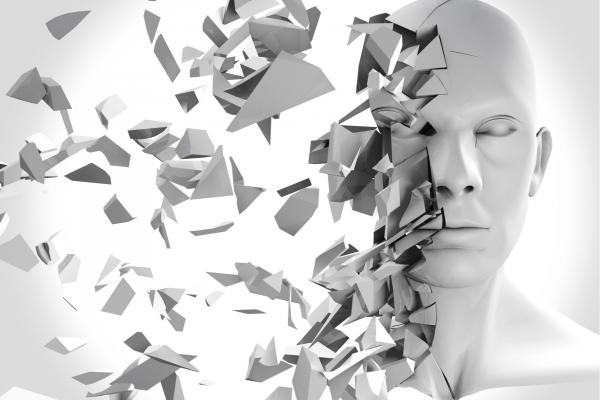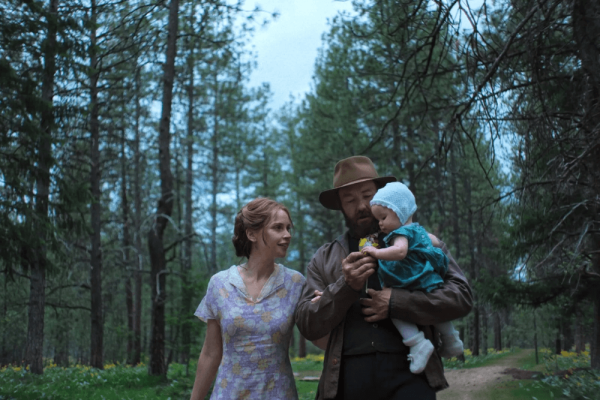One of the most appalling aspects of the political, religious, and social battles I have seen in the past few months has been the lack of compassion and empathy. I think back constantly to the command many of us grew up with: love your neighbor as yourself. In a time that is so divided, it seems we are losing sight of this command, and sometimes it feels like we never understood its implications in the first place.
If you have read any of Richard Rohr’s ideas on mirroring, you will quickly notice this same idea of looking at everything and everyone as a connection to and reflection of ourselves — a reflection we cannot escape, but can become distanced from if we do not regularly practice being present to one another.
It is the idea of mirroring, of understanding that what our own hearts carry are the same things that others carry, and the things that happen to others in this world are also happening to us.
Today in America, we have heard from the loudest voices pointing out that some citizens — particularly white ones — have a different amount of belonging than others do, and it is clear that citizens who do not fit into spaces of power are often unseen and unheard.
The decision to repeal DACA and the treatment of immigrants in our country reflects it.
The lack of attention to places like Barbuda that have been flooded reflects it.
The lack of acknowledgment of the plight of indigenous peoples in our history books and public life reflects it.
The way we speak of and treat people of color in our communities and sometimes in our churches reflects it.
If we were to return to the idea of mirroring, we’d see clearly that if we want to become the America we hope to be — the great one that honors all of its citizens — we have to first recognize that what we see in others is a reflection of ourselves.
Our churches would do well to practice this, and with the outrage over the DACA decision, I’ve seen some church leaders head to the front lines of the fight. But there is still a piece missing.
Enough of the church voted for a president that made such a decision among others, and those same churches, those same Christians, still uphold those decisions. As people who wish for a better America, we are called to remind one another that we belong to each other, no matter what race, religion, ethnicity, or sexual orientation.
So if our brothers and sisters are struggling, are terrified, are reeling, we struggle and sit terrified and we reel with them.
And we have to understand that when we deport them or oppress them, we are wounding ourselves.
As the church, we must acknowledge that the “body” is not healthy until the world of people outside our doors are truly welcome at the table and we truly see ourselves in them.
Only then will we see Christ in the world.
Only then will our politics and actions transform.
Only then will America become what those who are oppressed have longed for it to be for so long.
Perhaps much of America is afraid of what we would see in that mirror. Perhaps the lines we have drawn and the stigmas we have created leave us much more comfortable in our separate spheres. Mirroring can be uncomfortable at first. But as we continue to find our own identity in the reality of God and in each other, Richard Rohr describes it like this:
“After a while you feel so safe and you know you don’t have to pretend anymore. You recognize your need for mercy, your own utter inadequacy and littleness …”
Maybe, to get to a place in which we can mirror ourselves in one another, we have to begin with honesty before God, with honesty about our littleness in the grand scheme of things. We have to come to a place of nakedness in ourselves as individuals before we can attempt to make this nation and this world something other than what it is today.
Jesus, when he put mud into the eyes of the blind man, didn’t heal him and say, “Now care for those who look, sound and think like you.” He healed him, and in healing him, asked him to see with new eyes a world of created people and creatures that belonged to him just as they belonged to God. In healing the blindness of a stranger, Jesus held up a mirror to everyone around them and told them to look, to really look, and to care for those who meet their gaze.
We are all guilty of this. We’ve all forgotten how to carry the hearts of each other in our own hearts, and because of it, we are sick. May we learn what it means to mirror the grace of God in ourselves and find our own selves in one another ultimately.
We are all mirrors of each other, and so the things that hurt us hurt all of us, and the things that hold us together hold all of us together.
Perhaps we all just need to admit that sometimes we are blind, and in need of a little mud rubbed over our eyes to heal us of our blindness so that we can truly see.
Got something to say about what you're reading? We value your feedback!






